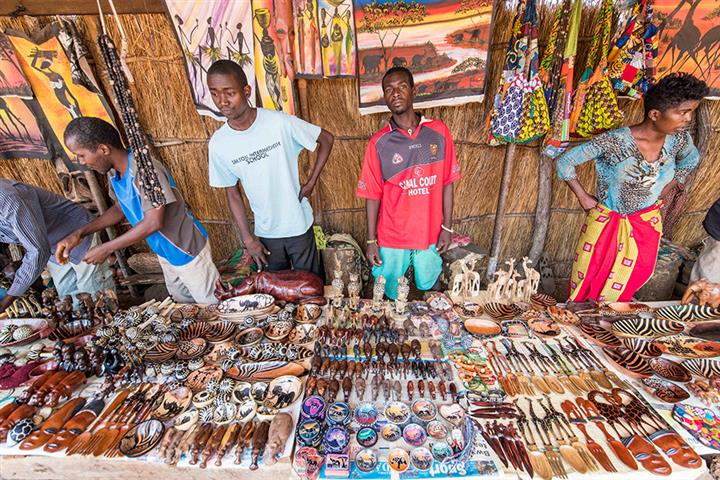 Zambia Covid-19: Playing A Waiting Game
Zambia Covid-19: Playing A Waiting Game(Yicai Global) April 27 -- Here in Lusaka, the capital city of Zambia, the threat of the novel coronavirus pandemic surrounds us. For the first time in living memory, we are being told to wear masks, to stay home and keep away from friends and family. Every trip into town reminds us that the danger is near. All my favourite restaurants and coffee shops are closed. Many fresh fruit and veg markets have been ordered to close too. Schools are shut. Those who can are working remotely.
The official figures tell us that 88 people have been infected so far, and that three people have died from the deadly virus. The government has been vigilant from the outset, shutting down all the airports except the main one, and imposing a mandatory 14-day quarantine on all people entering the country from abroad. However, should it get worse, they tell us they are reluctant to enforce a total lockdown as many people in this poverty-stricken country could not survive it.
I personally am not afraid of getting the virus. I’m relatively fit and healthy. Also Zambia is not a densely populated country. We have a lot of space and, except for trips to the shops and church, rarely congregate. However, I do worry about giving it to my two elderly parents who live across town from me. I have stopped visiting the house. I meet my mum in town but we wear masks and stand two meters apart, all very odd.
If the situation escalates, I worry about civil unrest. This is a poor country where many people live from hand to mouth, unable to stock up on supplies or save cash for a rainy day. Should the impact on the economy be severe, these people will have little choice but to turn to looting and other crimes to eat. While the government is doing what it can to contain the virus, should push come to shove it does not have the means to cope with a public health crisis, and there will be no handouts for those who lose their jobs.
I am also concerned about food security. We are fortunate in that Zambia is an agrarian nation, so we are unlikely to go short of fresh local produce, but we are very dependent on imports for fuel and other essential supplies. It is a landlocked nation and an important trans-continental overland transport hub. Truck drivers entering the country must quarantine for two weeks before they can continue their journey. So far, there have not been any major shortages.
The Zambians, though, are a resilient people. Nothing seems to faze them. Load shedding for up to 15 hours a day, relentless price hikes, water shortages, growing crime rates and still they carry on as normal. Whether we can weather the coronavirus storm, though, only time will tell.
Kim Taylor, who lives in Lusaka, is a freelance editor with Yicai Global.